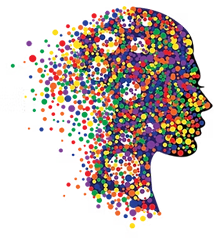
Every year, millions of people are affected by depression. For some, it may impact their energy levels on certain days, and for others, it can cause a decline in overall physical and mental health. Our depression therapy in NSW follows a multifaceted approach, ensuring everyone receives an entirely personalised service. To create a tailored treatment plan, we use state-of-the-art QEEG mapping and ERP’s. This allows us to develop the perfect combination of neurotherapeutic techniques, depression therapy, and Transcranial Direct Current Stimulation (tDCS). This allows us to tackle both the symptoms and the root cause of the depression, significantly reducing the likelihood of it returning in the future.
Transcranial Direct Current Stimulation (tDCS) is a non-invasive neuromodulation technique designed to modulate brain activity in specific brain areas, particularly those associated with depression or anxiety. It works by placing two electrodes on the scalp, which deliver a very low electrical current into the brain. This current can have a huge influence on neurons, causing them to be active, directly affecting cognition and behaviour. In recent years, this method has been investigated by various healthcare professionals, showing promising results in reducing depression, treating stroke recovery, and helping with several neurological conditions. It has even helped individuals improve their cognitive function, such as attention span, learning capability, and memory.
This method of treating depression is regarded as highly safe and has minimal side effects. The low current levels are not harmful in any way, and it has proven to be effective in various studies again and again. To find out more about this unique treatment, reach out, and we will be happy to tell you more.
Individuals who have undergone tDCS at our clinic often experience improved focus, memory, and mood. Here are some of the primary benefits:
To ensure our depression treatment services are comprehensive and tailored to each patient, we use additional techniques to enhance the outcome of the treatment. A massive part of our unique approach is neurotherapy. Neurotherapy works by mapping out the activity of the brain to identify imbalances. With this technology, we help train the brain to produce healthier activity and use neurostimulation to enhance specific regions of the brain. These techniques are entirely non-invasive and can help promote much healthier brain function, which directly impacts our emotional stability, reducing the symptoms of depression.
Sometimes, when we are exhibiting unhealthy habits or struggling with depression, it can be difficult to notice. To know whether our depression treatment services are the right fit for you, it is essential to recognise the signs. Additionally, if something isn’t feeling right, it is always worth checking in with a professional to see if we can make it better. Depression has many masks, and we must always try to act when we encounter them. Here are some common signs that a person might need our depression therapy in NSW.
It is important to understand that depression isn’t just an emotional response – it is often neurological. This is why our depression treatment services include brainwave mapping. This allows us to identify specific patterns, helping us to retrain the brain. When we can see these patterns, we are able to tailor depression therapy and treatment, enhancing its chances of success. Part of our mapping includes QEEG, a test to measure the brain’s electrical activity. Here is what QEEG brain mapping reveals in individuals with depression.
High Amplitude Frontal Alpha and Dysregulated Limbic Communication – The Alpha brainwave emerges from deeper, pace-making limbic structures, occurring when there is a lack of synchronisation between faster cortical frequencies. This directly impacts a person’s ability to process emotional stimuli.
Frontal Alpha Asymmetry – Our scan will pick up on imbalances in the left and right frontal lobes of the brain. These areas directly contribute to negative thinking. When a person suffers from depression, they are likely to experience higher power alpha content in the left frontal region. This can affect motivation and cause an inability to experience pleasure.
Slow-Wave Excess – Sometimes, depression can be related to excess theta and delta brainwaves in the frontal and central regions. These slow waves are associated with sleep and alertness, so when there is an excess, a person is likely to experience mental fog, low energy levels, and difficulty focusing.
When a person is struggling with depression, it is essential to recognise that their case is completely unique to them. This is why we believe it is necessary to carry out a full QEEG brain scan, allowing us to accurately assess how each brain works. This ensures the depression therapy we carry out is specifically designed for the client. With personalised neuromonitoring, we can target the dysregulated areas of the brain and provide appropriate support throughout the treatment. This is what makes our depression treatment services unique and effective.
Those who experience our depression treatment services are likely to become more emotionally balanced and able to identify, process, and enhance their overall regulation. They will be able to think clearly, focus, and stay motivated much more often. They may also feel less overwhelmed during stressful situations and have much more control over their thoughts and the way they respond. Our depression therapy in NSW isn’t just about reducing symptoms. We strive to transform lives in every possible way. If you have been struggling with depression and want to reconnect with your friends, family, work, and most importantly, yourself, this is the first step.
